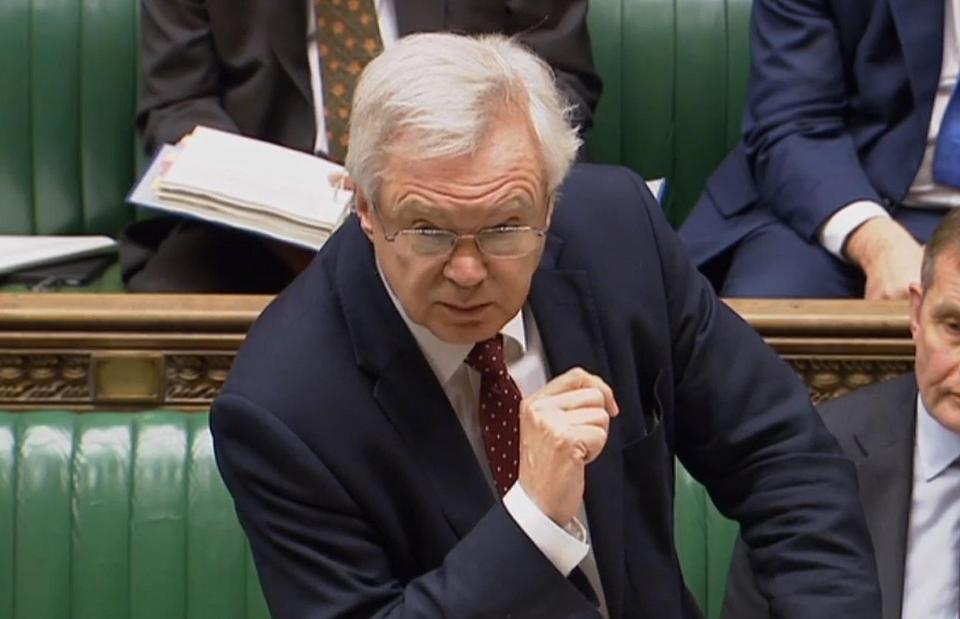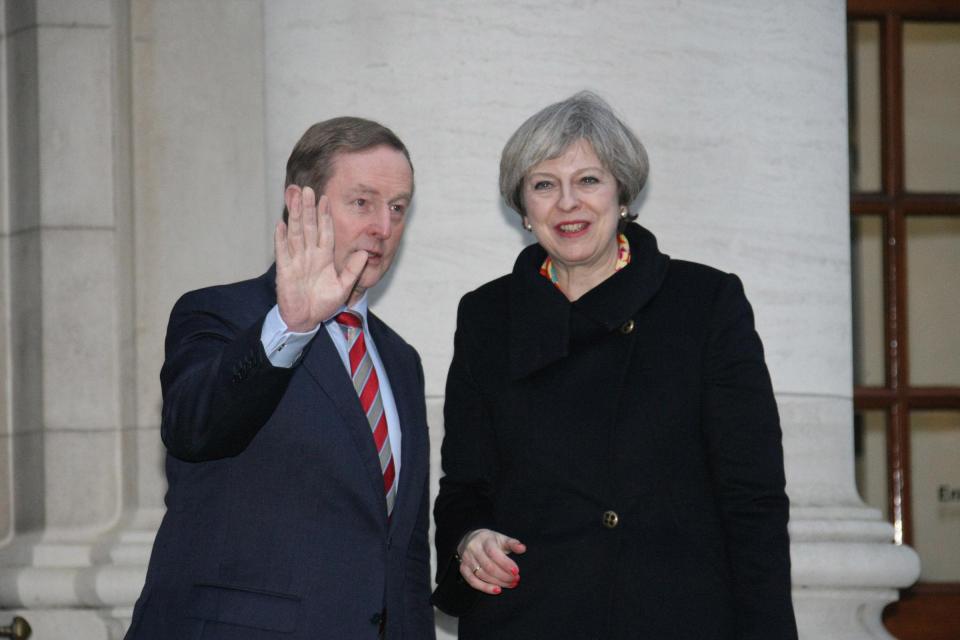David Davis accuses pro-EU MPs plotting to block the Brexit bill of abusing the trust of the British people

DAVID Davis has warned pro-EU MPs that they risk abusing the trust of the British electorate if they try and frustrate or block the Brexit bill.
The Cabinet minister was speaking ahead of the crucial House of Commons debate today, and said post-referendum politicians will be considering a very simple question: "Do we trust the people or not?"
The legislation allowing Theresa May to trigger Article 50 and kickstart divorce talks with Brussels is getting its second reading in Parliament this afternoon.
But Europhile MPs have laid down a series of amendments aimed at altering the simple bill, while some have already committed to voting against it.
Attacking those who want to derail the Government’s tight schedule for passing it, Mr Davis is expected to say: "It's not a bill about whether or not the UK should leave the EU, or how it should do so.
“It's simply about implementing a decision already made, a point of no return already passed. We asked the people of the UK if they wanted to leave the EU; they decided they did."
Government business managers have set aside two days for the second reading debate for the EU (Notification on Withdrawal) Bill - which will conclude with a vote tomorrow evening.
RELATED STORIES:
And despite the amendments tabled, it is expected to clear its first parliamentary hurdle relatively easily, after Labour said they will not seek to block triggering Article 50.
This is because although dozens of Labour MPs will rebel their leader Jeremy Corbyn’s advice and join SNP, Lib Dem and Green MPs to vote against the Brexit bill, the Government will still have a healthy majority.
And although there will be tougher tests ahead, including next week’s committee stage of the bill, No10 remains confident it will complete its passage through Parliament - including the House of Lords - in time for the Prime Minister to meet her March 31 deadline for invoking Article 50.
Former Tory education secretary and leading Remain campaigner Nicky Morgan said she was not planning to vote for any amendments to the Government Bill.
She told the BBC Radio 4 Today programme: "My instinct is no at the moment, not to support any amendments."
Failed Labour leadership candidate Owen Smith, one of the MPs set to defy Mr Corbyn's , accused the PM of "dissembling" on the issue.
"I fear that we are still being lied to, like during the referendum campaign, and lied to still about how easy this is going to be."
Mr Smith was among the 22 Labour MPs to lend their support to a wrecking amendment to the Bill, although it is highly unlikely to pass.
It calls on MPs to throw out the Bill at second reading "because the Government has failed to give assurances which safeguard British interests in the single market, and because the Government has failed to provide assurance that either Parliament or the UK electorate will have the ability to determine whether the UK should seek to withdraw from the single market in accordance with Article 127 of the EEA Agreement".
What happens next in the Brexit Bill and when will it be passed?
Today is the first day allocated for the bill’s Second Reading, but what other hurdles must ot pass before Article 50 can be triggered:
- MPs will debate the bill for the first time today, with the Commons set to stay open until around midnight to discuss five possible amendments
- Tomorrow night there will be three votes – one on the amendments, likely to fail, one on the bill itself – likely to pass, and one on the timetable for the bill
- Next Monday it will go to committee stag, with three more days of debates and votes on amendments, which could number into three figures
- If the bill passes at this stage, it will be followed by the third reading of the bill on Wednesday, which will complete its passage through the Commons by February 8
- It then passes through to the House of Lords, where the Government does not have a majority, for scrutiny on Monday February 20.
- It will undergo its committee stage, when the Government is set to face numerous attempts to amend the legislation, over two days the following week on Monday February 27 and Wednesday March 1.
- If peers successfully pass any amendments it will be sent back to the Commons for another vote, in a process known as ‘ping-pong’ which could potentially delay the bill’s completion
- The Government’s timetable says it is expected to complete its passage through the Lords by Tuesday March 7, when the Bill will then receive the Queen's approval - known as royal assent - and become an Act of Parliament.
- If this is successful it would allow Theresa may to then trigger Article 50 of the Lisbon Treaty at a European Council meeting in Brussels later that week, three weeks before her self-imposed deadline of March 31.














